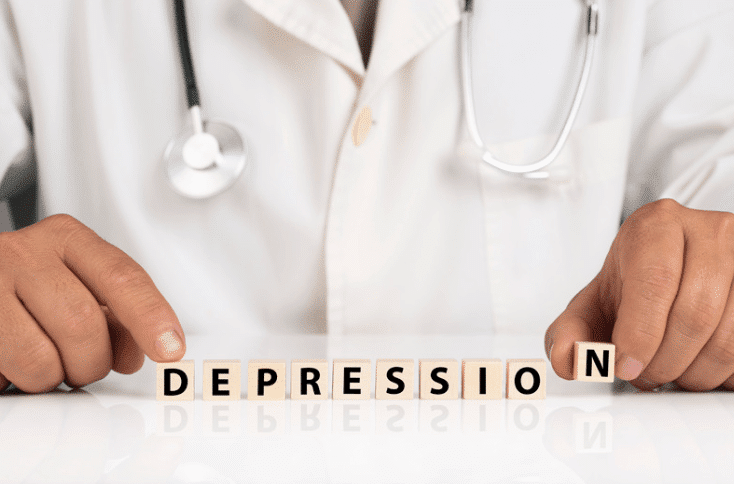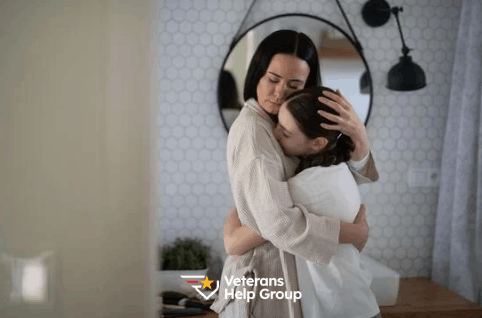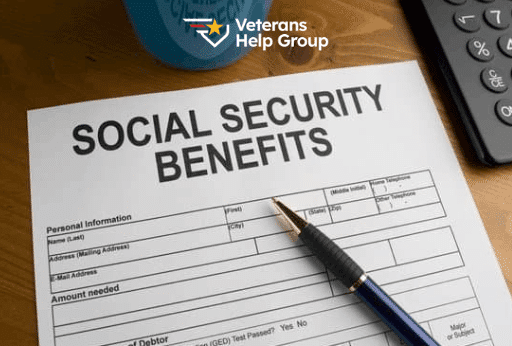
Table Of Contents
VA Disability Ratings for Depression
Depression is a widespread problem among Americans generally and is even more prevalent among veterans. According to the VA, about 1 in 3 veterans who visited primary care clinics had one or more signs of depression, and 1 in 5 had signs of serious depression. 1 in 8 had major depression, with a need for psychotherapy and/or medication.
Depression can be debilitating, and in 2022 about 290,000 VA disability recipients suffered from a major depressive disorder. Veterans diagnosed with depression receive a disability rating based on the general mental health standards in 38 CFR §4.130
VA Disability Ratings for Mental Health Disorders
Veterans suffering from a major depressive disorder or another listed mental health condition are rated as follows:
- 100% if veteran suffers total occupational and social impairment due to symptoms such as gross impairment of thought processes or communication, persistent danger of hurting themself or others, or intermittent inability to perform activities of daily living.
- 70% if veteran suffers occupational and social impairment with deficiencies in most areas of life (work, school, family relations, mood, judgment, and thinking) due to symptoms such as suicidal ideation, near-continuous depression affecting the ability to function independently, neglect of personal hygiene and appearance, difficulting adapting in stressful situations and inability to establish and maintain relationships.
- 50% if the veteran suffers from occupational and social impairment with reduced reliability or productivity due to symptoms such as flattened affect, difficulty in understanding complex commands, impairment of short and long-term memory, impaired thinking, mood disturbances, and difficulty establishing and maintaining relationships in occupational and social settings.
- 30% if the veteran suffers from occupational and social impairment with occasional declines in work efficiency and intermittent inability to perform occupational tasks due to symptoms such as depressed mood, anxiety, chronic sleep impairment, and mild memory loss.
- 10% if the veteran suffers from occupational and social impairment due to mild or transient symptoms which diminish work efficiency and the ability to perform occupational tasks during periods of significant stress, or when symptoms are controlled with medication.
- 0% if the veteran has been formally diagnosed with depression, but the symptoms are not severe enough to either interfere with occupational and social function or to require continuous medication.
As you can see, establishing the impact depression has on your life is key to receiving the maximum amount of veterans VA disability benefits available to you. The higher the VA disability rating, the higher the amount of your monthly disability benefit. At higher levels, you may also be entitled to additional benefits, such as increased access to free medical care and benefits for your family.
An experienced veterans disability benefits advocate can help you understand what type of information and documentation is necessary to fully support your claim, and help you put together the strongest application package possible.
To learn more about how Veterans Help Group can help veterans suffering from depression and other mental health conditions secure the benefits you deserve, call 855-855-8992 or contact us here.

DIC Rates for 2026
DIC Rates for 2026 Dependency and Indemnity Compensation (DIC) can be a lifeline for surviving...

VA Disability Payment Schedule for 2025 (UPDATED FOR 2026)
VA Disability Payment Schedule for 2025 (UPDATED FOR 2026) VA disability compensation provides...

Do You Qualify for Special Monthly Compensation (SMC)? How Disabled Veterans Can Get Extra VA Pay Beyond 100%
Do You Qualify for Special Monthly Compensation (SMC)? How Disabled Veterans Can Get Extra VA Pay...





